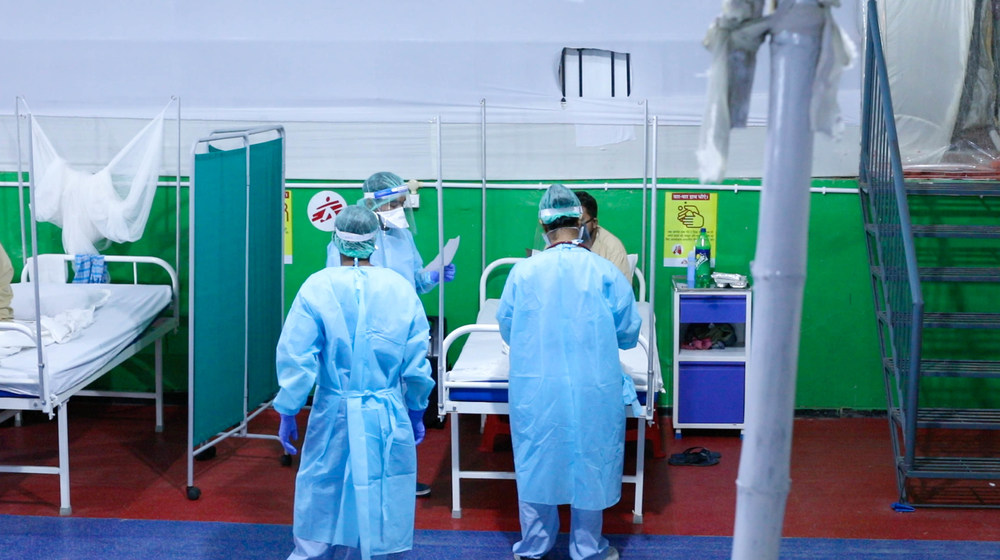“A very strong emotional fight”: Tijuana, Mexico
In MSF’s hospital set up in a basketball stadium in Tijuana, northwest Mexico, psychologists witnessed how the physical effects of COVID-19 could have major emotional repercussions for patients.
As the hospital provided care for non-critically ill patients from the start of May until end of June, the team found mental healthcare to be key to people’s recovery from the disease.
“Not being able to breathe and the fear of dying obviously increase patients’ anxiety levels,” said Lucia Samayao, manager of MSF’s psychosocial strategy in Tijuana, in May.
“These are people who have had a very strong emotional fight in order to get better, and whose symptoms and physical state have forced them to think about life and death issues. They have had constant worries about what will happen if they can no longer see their family, if they can no longer hug them, increasing their anxiety and making it even harder to breathe.”


